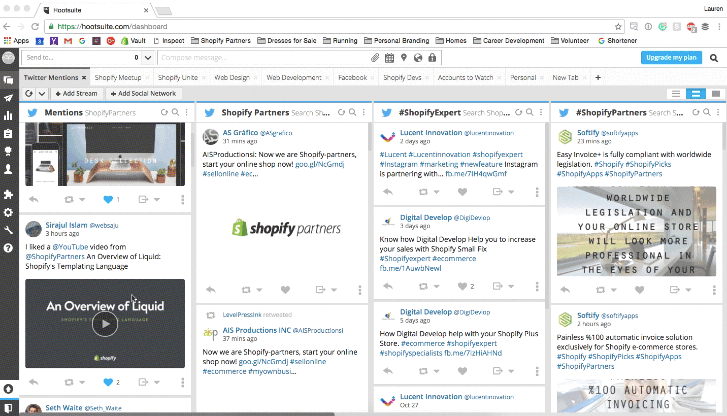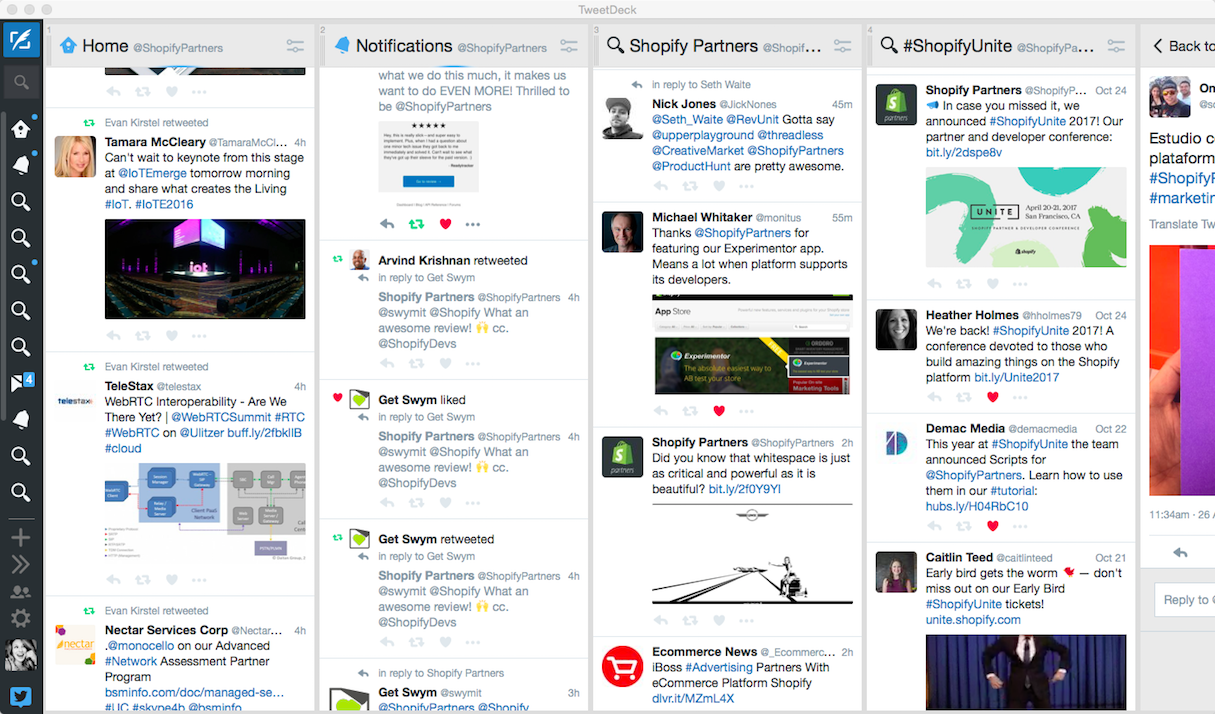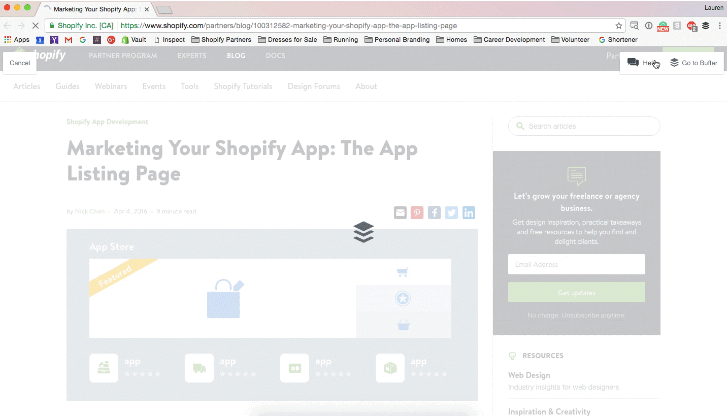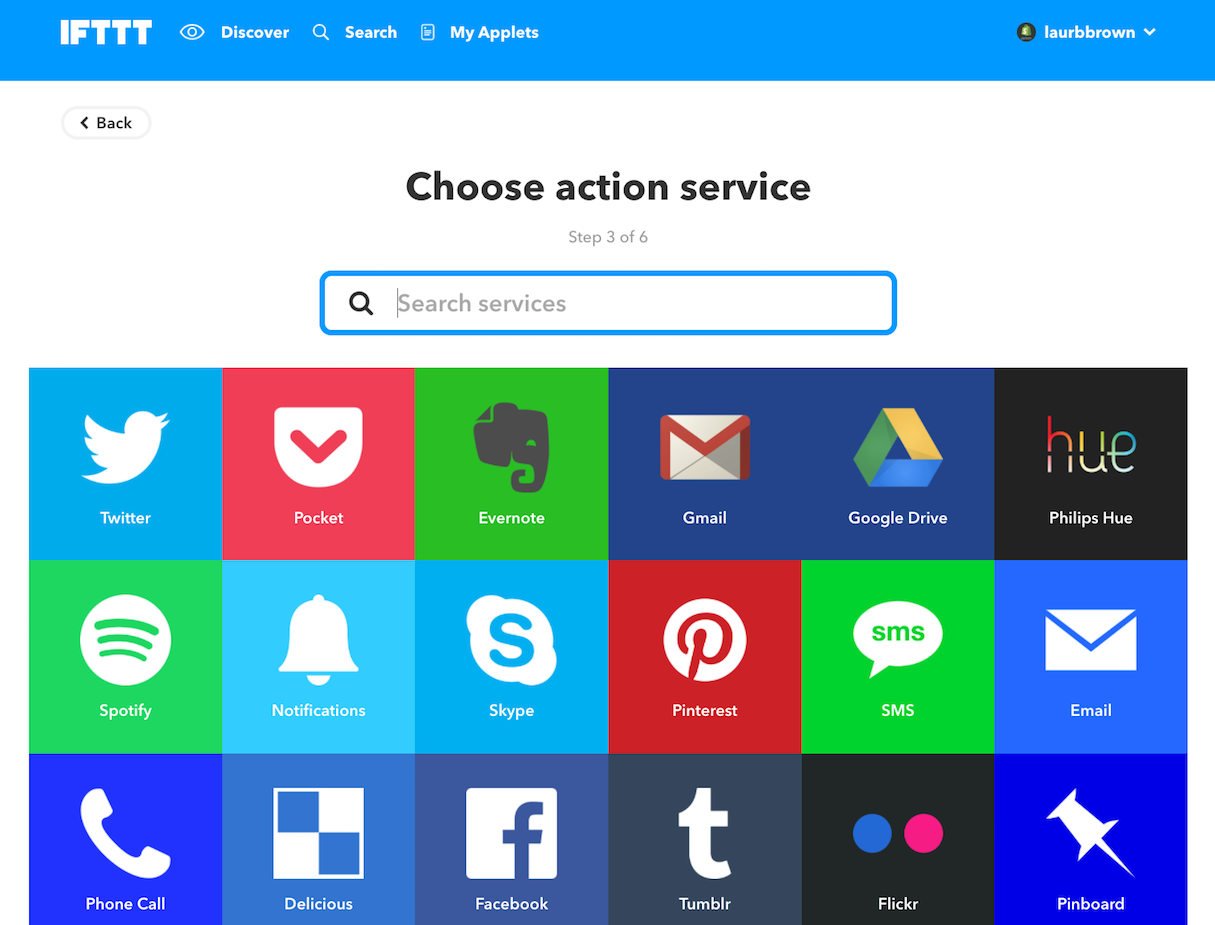If done effectively, social media can be one of the driving forces for the success of your freelance or agency business. A natural extension to your portfolio website, your social media accounts should be up to date and a core part of your marketing plan.
Pretty much everyone and their dog is on social media (literally, there are dogs on Instagram that have more followers and engagement than some celebrities). It was reported that as of March 2016 the internet had 3.17 billion users, and 2.3 billion of them are active on at least one social media platform. That’s a lot of people and a lot of opportunity!
In today’s post, I’m going to break down the benefits of being active on social media and how you can get started. As you read on, you’ll find great examples and tactics you can implement today to help you grow your freelance or agency business with social media.
Let’s dive in!
Why should I be active on social media?
The purpose of using social media for your business should differ only slightly from that of an individual user. A lot of companies think that social media is first and foremost a channel for client acquisition. Although that is a leading reason to build a presence on these platforms, there are a few other moving parts that come along with it.
For this article, I decided to break them down into the four C’s of social media:
1. Clout
If a tree falls in a forest and nobody’s around to hear it, does it make a sound? The same philosophy can be applied to your reputation. You may be the best designer or developer there ever was, but if you don’t share your work or actively engage in relevant conversations, nobody will ever know. If you are working towards becoming an industry leader or building your professional brand, social media networks can serve as the perfect soapbox to showcase your expertise and build your reputation.
2. Community and conversations
For a lot of people, social media networks are the first thing they check when they wake up, and the last thing they look at before they go to bed. These online communities are places to connect with friends, family, and those they haven’t even met in person. As a freelancer or agency employee, you can join communities and conversations with people in your industry to share insight and advice.
There’s also an opportunity to get involved in entrepreneurial or business communities, where people ask for advice or look for help from industry experts such as yourself. If done tastefully as a business, you can be welcomed and valued in these communities.
3. Content
Social media is a great place to get your content in front of other people and drive traffic back to your portfolio or blog. It’s also a great way to collect content ideas or articles you can share with your audience to provide more value.
Simply put, by sharing content that links back to your website, you are positioning yourself as an industry leader and increasing potential referral traffic. This can help get your name out there and might even result in a few inquires about your services.
4. Conversions
There are plenty of opportunities and conversations happening on social networks that can potentially lead to new clients. This could be a current client expressing their satisfaction with your work to their network, resulting in lucrative word of mouth referrals for your business. Or it could involve you actively cultivating these conversations and offering your services (in a genuine way, which we’ll get to in a minute).
What should my strategy be for social media?
Social media can be a full-time job (trust me, I’m well versed), so you want to make sure you are setting up yourself to succeed in the Twittersphere or wherever your social travels take you.
First, you’ll want to look back at your marketing plan and review who your customers are. Try to identify some of their psychographic qualities and media consumption habits, like which social platforms they use, what their pain points are, what types of content they engage with, and what you have in common that can help you connect with them.
Next, you want to establish how much time you can actually dedicate to your social media efforts. That includes finding relevant content you want to share, searching for conversations and groups you want to engage with, and responding or reacting to those in your network. Be honest with yourself — it’s better to start small, build strong connections, and grow from there.
Before deciding which social platforms you want to put your time and energy into, you’ll need to come up with a plan to determine what you have to offer that community and what your desired outcome is. The two questions I always ask when thinking of setting up a new social media account are, “why are people going to engage with me?” and “what are four things I would provide to connect with that audience or community?”
You could also use the “why” philosophy, where you ask yourself “why?” multiple times to identify fundamental driving factors. Once you establish that, you can start to look at which platform will work best for your business and goals.
Pro tip: Try not to focus so much on the number of followers, likes, or connections you have. Instead, look at the actual engagements and conversations you’re having. If you are sharing good content and people are connecting with your business, the word will begin to spread organically. Once you’ve established and proven your value, you can start to deep dive into other growth strategies to build your social empire.
Which platform should I use?
Now that you’ve come up with your strategy, it’s time to pick the social media platform(s) you think work best for your goals. Remember to keep in mind how much time you are willing to spend on these accounts, and focus on the four Cs: establish clout, join conversations, deliver content, and drive conversions.
There are many social networks out there, but I’ll focus on the leading four: Facebook, Twitter, Instagram, and LinkedIn. A few others that came up are Dribbble, Google+, Reddit, and Pinterest (let me know in the comments if you’re interested in learning more about these platforms, or have others that work better for your business).
1. Twitter
 With over 313 million active users, Twitter is a great platform to share content and connect with other industry leaders and potential clients. On average, there are 500 million tweets sent each day. To put that in perspective, that is 6,000 tweets every second 😮.
With over 313 million active users, Twitter is a great platform to share content and connect with other industry leaders and potential clients. On average, there are 500 million tweets sent each day. To put that in perspective, that is 6,000 tweets every second 😮.
These conversations have to start somewhere! That’s where your amazing content comes in. Try sharing some cool projects you’re working on, articles you think your audience would be interested in, or general comments or questions that people could engage with. For some great examples of freelancers or agencies killing it on Twitter check out:
With that amount of content, it can be hard to comb through all the conversations going on. Using the search bar, you can specify which hashtags you want to look through or you can search general terms. For example, you can search “looking for a web designer” on Twitter and it will return all the people who have tweeted that specific phrase.
That’s not all, Twitter also has a very robust search tool with lots tricks to pull up great content. If you want to learn more, check out this article with more tips on how to search on Twitter.
When you come across someone posting a job on Twitter or asking for advice, remember your four C’s. You want to demonstrate you are an industry leader (clout) and provide a thoughtful response. This can be accomplished linking to relevant work you’ve done in the past (content), or if you really want to get fancy you can leverage your community and tag a satisfied client you’ve worked with.
Ultimately, you want to prove to them why they should choose you over anyone else that might reach out.
Pro tip: Not everything you post is going to seen. Depending on how often you’re posting, you can recycle old tweets a few days or weeks after they originally go out.
2. Facebook
 Facebook has evolved immensely from what it was 10 years ago: a place college kids went to connect. It has grown into the world’s largest social network with over 1.8 billion monthly active users. As a freelancer or agency, there are a lot of opportunities to reach potential clients and engage with your audience on this network.
Facebook has evolved immensely from what it was 10 years ago: a place college kids went to connect. It has grown into the world’s largest social network with over 1.8 billion monthly active users. As a freelancer or agency, there are a lot of opportunities to reach potential clients and engage with your audience on this network.
Unlike Twitter, Facebook doesn’t allow you to easily search for specific conversations. One way to find and get involved in more conversations are groups. A Facebook group is a community of people that share a common interest. These communities provide advice and struggles, seek feedback, and post helpful tips or content. Regardless of whether you’ve created a Facebook page of your own, you can start taking advantage of all the groups on Facebook by joining existing communities. There are groups for just about anything!
🚨 Before you decide to flee from this article and jump on Facebook to join a bunch of groups, consider the following suggestions if you want to find success. Think of groups like a large circle of friends or family. When you join a group of friends, you don’t bulldoze the conversation and expect to be the centre of attention. The same rule applies to a group on Facebook: you can’t pitch your services without proving your value.
With that in mind, consider starting out with two to three groups so you can stay active and build your clout. For starters, always introduce yourself to the group and engage with active members in a friendly way. You want to build up trust in the group and be known as the industry leader. To do this, try providing free advice or offering open feedback before introducing the pitch.
These are a few examples of groups you can get involved in and provide value to:
3. LinkedIn
 LinkedIn is the leader in professional online networking, and boasts over 467 million registered members. As a freelancer or web designer working at an agency, LinkedIn is great for networking, showcasing your experience, and meeting prospective clients.
LinkedIn is the leader in professional online networking, and boasts over 467 million registered members. As a freelancer or web designer working at an agency, LinkedIn is great for networking, showcasing your experience, and meeting prospective clients.
It doesn’t look very professional when someone searches your name and a stale LinkedIn profile pops up. Having a good profile is crucial if you are considering sharing content and joining groups. Similar to Facebook, LinkedIn has an abundance of groups for just about anything! Depending on the group permissions, you can share content and engage with group members as yourself, not your business (hence the comment on keeping your profile fresh). Chances are, those you engage with are going to check out your credentials.
PS: Remember all those tips about joining Facebook groups? They apply to LinkedIn groups as well.
4. Instagram
 This social media powerhouse has more than 500 million monthly active users. Instagram is a highly visual platform, and is the perfect place to showcase your brand personality and feature some of the work you’ve done.
This social media powerhouse has more than 500 million monthly active users. Instagram is a highly visual platform, and is the perfect place to showcase your brand personality and feature some of the work you’ve done.
That being said, Instagram is one of those platforms that businesses may have a harder time justifying what value they can bring the audience. If you don’t have visually appealing images or short videos to share, think about starting with one of the other platforms first.
If you believe Instagram is the right platform for you, remember to use hashtags within the copy of your posts so people outside of your immediate network can easily find them. The hashtag feature also allows you to easily browse through images and engage with those profiles. If you are looking for some great examples of business Instagram accounts, check out my last blog post on agencies and freelancers to follow on Instagram.
How can I keep my social media marketing organized?
Staying on top of your social media accounts is arguably even more important than actually having them. It’s easy to “set it and forget it,” which can look unprofessional and stale — even more so if clients are commenting about your company and you aren’t responding to them.
The tools below are cheap (mostly free) and painless options to help you keep everything organized and under control.
1. Hootsuite
Hootsuite does it all, from monitoring all your accounts, to publishing content, to basic reporting. Remember that great search function on Twitter where you can see everyone that’s mentioned the phrase “looking to hire a web designer”? Hootsuite allows you to add these as search columns that you can easily go back and browse through. You can then reach out and respond directly from Hootsuite.
This is the perfect place to monitor not only what people are saying about your agency or brand, but to see what else is going on based on search terms.
2. TweetDeck
Similar to Hootsuite, TweetDeck allows you schedule tweets and set up columns to monitor mentions, lists, and activity happening on Twitter. They also have a desktop app so you don’t have to have the account open in a browser. The catch is that this tool is only for available for Twitter.
3. Buffer
Buffer is a great tool for scheduling content on all your accounts (including Instagram!). When adding a link to buffer, it will pull the image attached to the URL, saving you from having to upload the image yourself. They also have an amazing Chrome extension, which makes it easy to share content from any page.
You can even highlight a sentence, click the Buffer extension, and your social post is ready with the copy you wanted. Buffer has great built-in reporting too, which can help you identify what’s working and what isn’t with your social media strategy.
4. IFTTT
I was a little behind the times on this one and only recently started using IFTTT. IFTTT stands for “if this than that” and that’s exactly what it does — automates daily tasks. What’s even better is that they pretty much have “IFTTT” options for everything on social media when it comes to sharing content or even monitoring your profiles. For example, you can have mentions or hashtags pushed to a Slack channel so you never miss a mention on Twitter.
 Regulus
Regulus









Leave a Reply